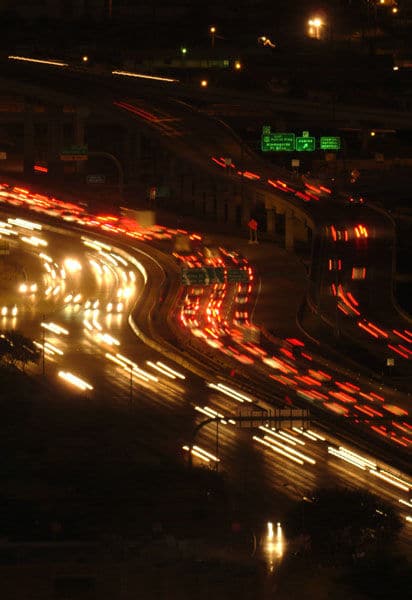March 8, 2017
Weeks after two state senators questioned how billions in voter-approved highway money could be clawed back and spent on other state needs, Texas transportation officials on Wednesday touted a litany of projects they plan to build with the funds.
The Texas Transportation Commission, which oversees the state transportation department, is set to vote this month on its 10-year plan that lays out its long-term strategy for upcoming road projects. Included in that is a $2.5 billion, four-year plan specifically aimed at unclogging choke points in urban areas.
But some of that $2.5 billion in spending will only happen if the Texas Department of Transportation receives all of the funds that Texans in 2015 agreed to dedicate to public roadways and bridges. Proposition 7 was supported by 83 percent of voters and changed the state Constitution to require some taxes collected on car sales to be routed directly to the State Highway Fund. The change is expected to garner $5 billion for TxDOT in the next two years, some of which would go to the department’s latest urban congestion initiative.
“My fellow commissioners and I view this as a Texas voter mandate,” said transportation commissioner Bruce Bugg, who was appointed by Gov. Greg Abbott.
Lawmakers can reduce the transfer to the highway fund by up to 50 percent through a two-thirds vote in both the House and Senate. No one has publicly backed such a move, but key budget writers have privately discussed the option. And at a Senate Finance Committee hearing last month, two state senators — Democrat Kirk Watson of Austin and Republican Charles Schwertner of Georgetown — asked Legislative Budget Board staffers about how such a money transfer might work.
State lawmakers this year have far less money at their discretion when crafting the next two-year budget. Tax cuts in 2015 reduced available state revenues by about $4 billion. And the voter-approved transfer of funds to the highway fund is set to leave even fewer dollars available to put toward areas such as health care and education.
As TxDOT has been updating its long-range plans, the agency has assumed it will receive all of the Prop 7 money, Bugg said in a conference call with reporters Wednesday.
“We are anticipating where these funding streams are going to be coming from and how to place these funding streams on projects that are so desperately needed in the five major metropolitan areas,” he said.
Bugg added that TxDOT needs to keep pace with expected population growth, particularly in the state’s urban areas. He pointed to Abbott’s proposed budget, which calls for directing all of the Prop 7 funds to TxDOT as voters intended.
Here’s a look at the $2.5 billion in urban congestion projects that TxDOT plans to tackle if the transportation commission approves the agency’s long-term transportation plan later this month:
Austin area
Location: Interstate 35 from Rundberg Lane to U.S. Highway 183
Project: Implement improvements to connections, pavement and bicycle and pedestrian areas
Cost: $133.3 million
Location: Interstate 35 from south of Holly Street to north of Oltorf
Project: Implement improvements to ramps, pavement, bicycle and pedestrian areas and frontage road intersections
Cost: $162.3 million
Location: U.S. Highway 183 from State Highway 45 to State Highway Loop 1
Project: Build two general purpose lanes
Cost: $120 million
Dallas area
Location: LBJ Freeway from Miller Road to Interstate 30
Project: Add HOV/managed lanes, rebuild frontage roads, improve LBJ/Interstate 30 interchange
Cost: $437.7 million
Fort Worth area
Location: State Highway 121 from State Highway 114 to Dallas County line
Project: Rebuild LBJ Freeway and FM 2499 interchanges
Cost: $370 million
Houston area
Location: Interstate 610 from west of Cambridge to west of Scott Street
Project: Construct overpass at Cambridge Street, Alemda Road and Union Pacific Railroad
Cost: $75 million
Location: Interstate 69 from Interstate 45 to State Highway 288
Project: Rebuild and widen to 12 lanes and rebuild interchange with State Highway 288
Cost: $173.5 million
Location: Interstate 69 from State Highway 288 to Spur 527
Project: Rebuild to 10 main lanes
Cost: $192 million
Location: Interstate 69 at McGowen, Tuam and Elgin
Project: Construct three gateway bridges
Cost: $55.8 million
Location: Interstate 45 at Interstate 69 South
Project: Rebuild interchange, including I-45 and I-69 main lanes
Cost: $501.7 million
San Antonio Area
Location: Interstate 10 from Interstate 410 to Loop 1604
Project: Expand from four to six lanes
Cost: $60 million
Location: State Loop 1604 from Interstate 35 to FM 78
Project: Expand to four-lane expressway
Cost: $40 million
Location: U.S. Highway 281 from north of Stone Oak to Bexar-Comal county line
Project: Expand to four main lanes and two carpool lanes with frontage roads
Cost: $91 million
Location: Interstate 410 from FM 3487-Culbera to U.S. Highway 90
Project: Add two lanes and reconstruct interchange with State Highway 151
Cost: $100 million
Location: Interstate 410 at Interstate 10-E
Project: Construct direct connectors
Cost: $25 million
This article originally appeared in The Texas Tribune at https://www.texastribune.org/2017/03/08/texas-big-cities-poised-receive-25-billion-highway-projects/.
The Texas Tribune is a nonprofit, nonpartisan media organization that informs Texans — and engages with them — about public policy, politics, government and statewide issues.






